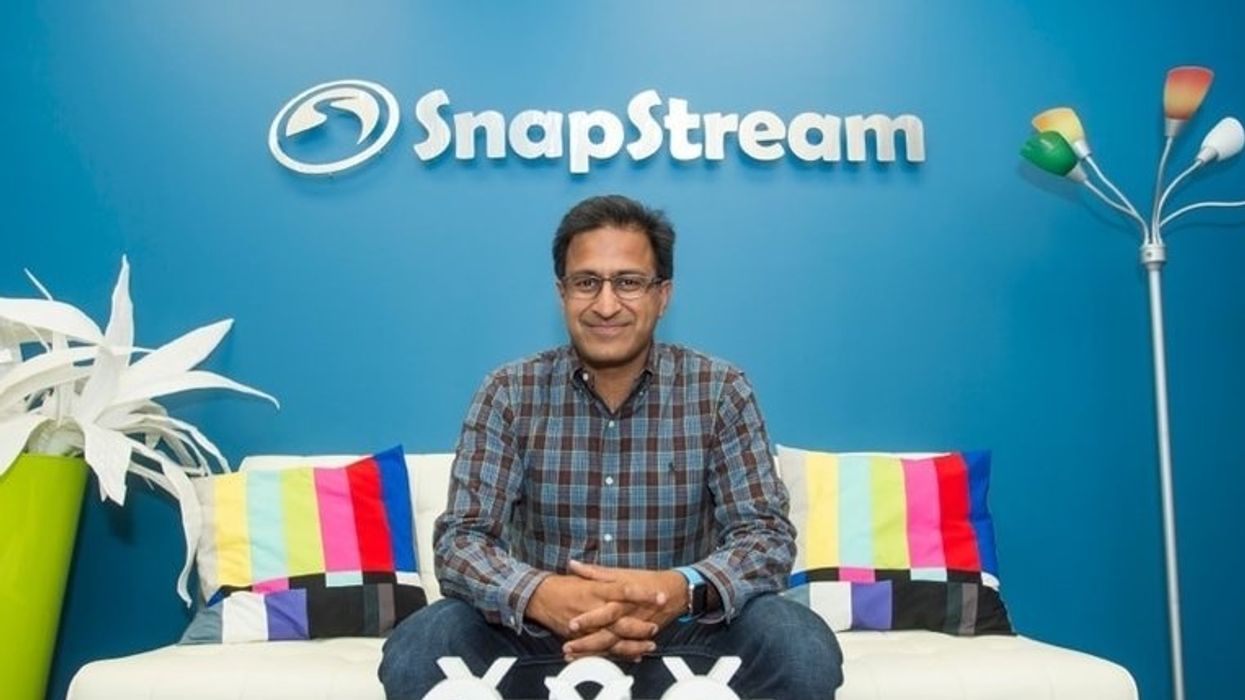This week's movers and shakers in Houston innovation are dealmakers and leaders — from securing huge partnerships to influencing the next generation of inventors. These are the three innovators to know in Houston this week.
Rakesh Agrawal, CEO of SnapStream

Courtesy of SnapStream
A Houston tech innovator just made a deal with Verizon. Verizon Digital Media Services announced that SnapStream is the "official transition partner" for a product under Volicon Observer, a company that was acquired by Verizon in 2016. SnapStream's CEO Rakesh Agrawal says in a release that the two entities have similar products, features, and even customers, but have always had a respectful relationship.
"SnapStream is known, among other things, for the great support we provide, and we look forward to providing the same high-quality support to Volicon customers," Agrawal says in the release. "We hope to eventually earn the business of current Volicon customers by converting them into SnapStream customers." Read the full story here.
Enrico Ladendorf, founder and managing partner of Pason Power

Courtesy of Pason Power
Another Houston dealmaker is Enrico Ladendorf, founder and managing partner of Pason Power. In layman's terms, Pason Power offers an array of technologies — including AI, IoT, real-time automation — that support energy storage systems throughout a project's lifecycle. Energy storage systems is a wide umbrella that includes everything from the massive systems used to store renewable energy and biofuels, to household batteries, which store electricity.
"We have intelligent energy management system, which is an intelligent brain that sits inside an energy storage system," says Ladendorf. "We have this intelligent, fully-autonomous system that knows the physical operation of (energy storage and drill rigs), and it makes it brain-dead simple." Read the full story here.
Pam Rosen, general manager of the Shell Eco-marathon

Courtesy of Shell
Houstonian Pam Rosen lead Shell's Eco-marathon, which took place from April 3 to 6. Two student teams represented Houston in the competition — one from Rice University and James E. Taylor High School.
"We really needed to get more young people interested in technology careers," says Pam Rosen, general manager of the Shell Eco-marathon. "It [doesn't] even need to be with Shell. It's more about the method, science, and helping [students[ gravitate toward those opportunities." Read the full story here.

 Apple doubles down on Houston with new production facility, training center Photo courtesy Apple.
Apple doubles down on Houston with new production facility, training center Photo courtesy Apple.